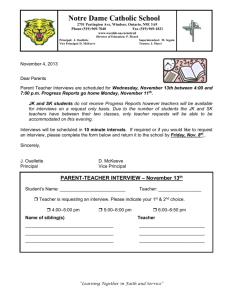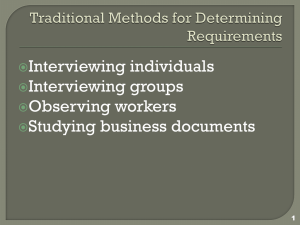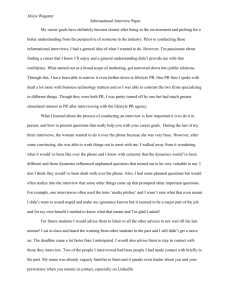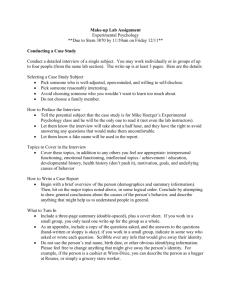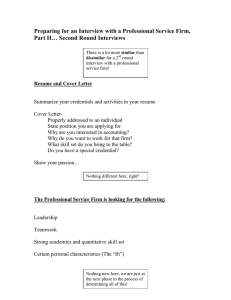Cold War Oral History Project
advertisement
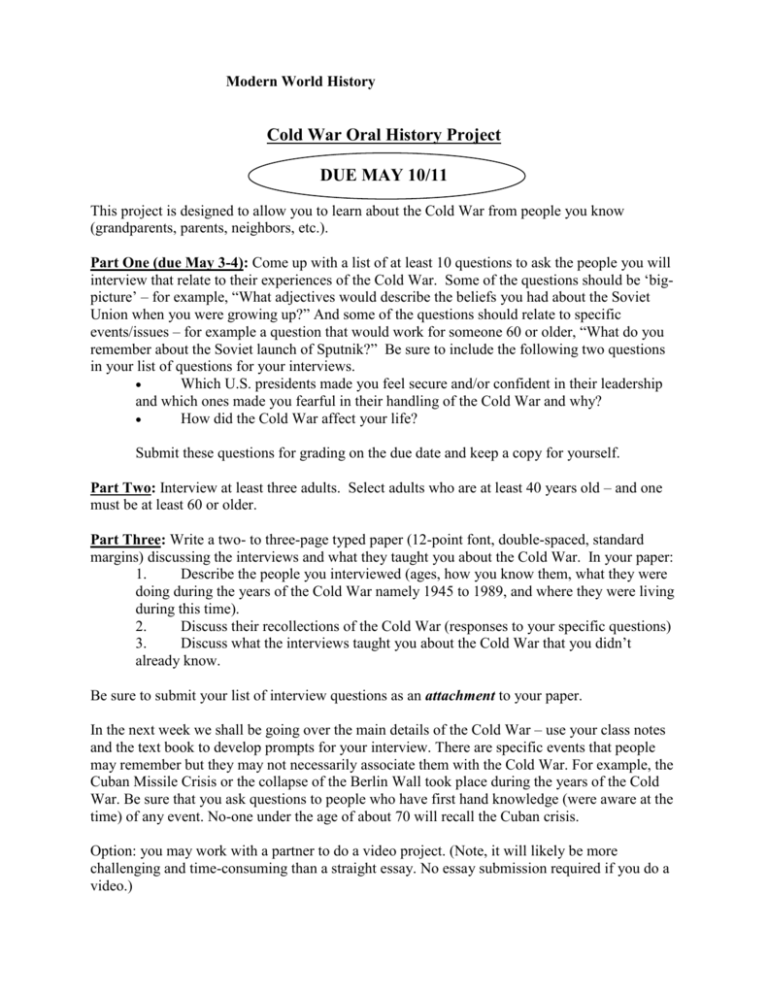
Modern World History Cold War Oral History Project DUE MAY 10/11 This project is designed to allow you to learn about the Cold War from people you know (grandparents, parents, neighbors, etc.). Part One (due May 3-4): Come up with a list of at least 10 questions to ask the people you will interview that relate to their experiences of the Cold War. Some of the questions should be ‘bigpicture’ – for example, “What adjectives would describe the beliefs you had about the Soviet Union when you were growing up?” And some of the questions should relate to specific events/issues – for example a question that would work for someone 60 or older, “What do you remember about the Soviet launch of Sputnik?” Be sure to include the following two questions in your list of questions for your interviews. Which U.S. presidents made you feel secure and/or confident in their leadership and which ones made you fearful in their handling of the Cold War and why? How did the Cold War affect your life? Submit these questions for grading on the due date and keep a copy for yourself. Part Two: Interview at least three adults. Select adults who are at least 40 years old – and one must be at least 60 or older. Part Three: Write a two- to three-page typed paper (12-point font, double-spaced, standard margins) discussing the interviews and what they taught you about the Cold War. In your paper: 1. Describe the people you interviewed (ages, how you know them, what they were doing during the years of the Cold War namely 1945 to 1989, and where they were living during this time). 2. Discuss their recollections of the Cold War (responses to your specific questions) 3. Discuss what the interviews taught you about the Cold War that you didn’t already know. Be sure to submit your list of interview questions as an attachment to your paper. In the next week we shall be going over the main details of the Cold War – use your class notes and the text book to develop prompts for your interview. There are specific events that people may remember but they may not necessarily associate them with the Cold War. For example, the Cuban Missile Crisis or the collapse of the Berlin Wall took place during the years of the Cold War. Be sure that you ask questions to people who have first hand knowledge (were aware at the time) of any event. No-one under the age of about 70 will recall the Cuban crisis. Option: you may work with a partner to do a video project. (Note, it will likely be more challenging and time-consuming than a straight essay. No essay submission required if you do a video.)



